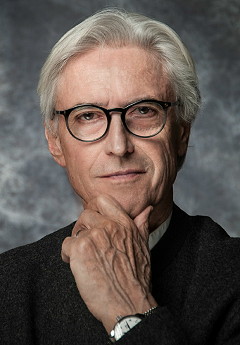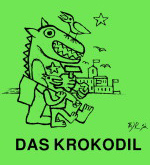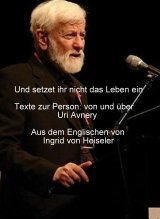SUCHE
Unabhängige Nachrichten, Berichte & Meinungen
Kultur und Wissen
Die Psychotherapie ist ein „Werkzeug“, womit sich die Natur und Reaktionsweise des Menschen erkennen lässt
Blick in die Tiefe der menschlichen Seele
Von Rudolf Hänsel
 Wer als wacher Zeitgenosse die Natur des Menschen kennen lernen möchte, wer wissen will, warum sich die Menschen so und nicht anders verhalten, warum sie sich mit den Ehepartnern nicht verstehen und ihre Kinder schlagen und/oder stark verwöhnen, warum sie in den Krieg ziehen anstatt in Frieden zu leben und warum in der Gesellschaft eine Minderheit auf Kosten der Mehrheit lebt, der kommt an den Forschungsergebnissen der naturwissenschaftlichen Psychologie nicht vorbei (1). Da sich die Menschen im Laufe der Jahrhunderte aus dem Mittelalter herausentwickelt und am bisher Gelernten immer mehr Zweifel haben, können sie sich naturwissenschaftliches Wissen jederzeit aneignen. Sie müssen sich dafür auf das Feld der Psychologie begeben und Menschenkenntnis erwerben. Wenn es ihnen gelingt, neue Gedanken aufzunehmen, verblassen die falschen Meinungen, die die Großeltern oder Eltern vermittelt haben. Voraussetzung ist die Neugierde, etwas Neues zu erfahren und der Mut, sich mit dem bisher Erlernten sowie dem religiösen Menschenbild auseinanderzusetzen, um herauszufinden, was richtig und was falsch ist.
Wer als wacher Zeitgenosse die Natur des Menschen kennen lernen möchte, wer wissen will, warum sich die Menschen so und nicht anders verhalten, warum sie sich mit den Ehepartnern nicht verstehen und ihre Kinder schlagen und/oder stark verwöhnen, warum sie in den Krieg ziehen anstatt in Frieden zu leben und warum in der Gesellschaft eine Minderheit auf Kosten der Mehrheit lebt, der kommt an den Forschungsergebnissen der naturwissenschaftlichen Psychologie nicht vorbei (1). Da sich die Menschen im Laufe der Jahrhunderte aus dem Mittelalter herausentwickelt und am bisher Gelernten immer mehr Zweifel haben, können sie sich naturwissenschaftliches Wissen jederzeit aneignen. Sie müssen sich dafür auf das Feld der Psychologie begeben und Menschenkenntnis erwerben. Wenn es ihnen gelingt, neue Gedanken aufzunehmen, verblassen die falschen Meinungen, die die Großeltern oder Eltern vermittelt haben. Voraussetzung ist die Neugierde, etwas Neues zu erfahren und der Mut, sich mit dem bisher Erlernten sowie dem religiösen Menschenbild auseinanderzusetzen, um herauszufinden, was richtig und was falsch ist.
Das geeignete „Werkzeug“ für diesen Schritt in die Neuzeit ist die wissenschaftliche Disziplin der Psychotherapie. Durch die Vertrauensbeziehung zu einem Psychologen kommt der Mensch in die Lage, das Wesen und die spezielle Reaktionsweise seiner Spezies kennen zu lernen. Dies führt zu einer Umorientierung seines Charakters, zu einer Versöhnung mit den Eltern, zu freundschaftlichen Beziehungen zu den Mitmenschen und zum Verständnis des kulturellen Problems. Das Leben des Menschen wird dadurch schöner und würdiger sowie erstrebenswert für die Jugend.
Religiöses versus naturwissenschaftliches Menschenbild
Das bisherige „Wissen“ über die Natur des Menschen ist in vielerlei Hinsicht falsch! Charakter, Persönlichkeit, Verhalten und Intelligenz des Menschen entwickeln sich in der Kindheit und sind das Resultat eines schöpferischen Prozesses, Ausdruck einer ganz persönlichen Stellungnahme zur Welt. Der Mensch ist demnach ein geschichtliches Wesen. Die psychische Entwicklung des Kindes hängt von der zwischenmenschlichen Beziehung in der Erziehung, von der emotionalen Sicherheit, vom Grad des Gemeinschaftsgefühls der Erzieher und von der Kultur ab, in der das Kind seine Sicht der Welt, seine Gesinnung und seinen Lebensstil entwickelt.
Das Gefühlsleben des Menschen ist also nicht abhängig von Trieben, sondern Ausdruck der Gesinnung, seiner lebensgeschichtlich gemachten und kreativ interpretierten Erfahrungen. Deshalb ist das Erziehungsproblem ist etwas ganz Gewaltiges; die ganze Welt befasst sich damit: Tausende von Pädagogen, Philosophen und Professoren. Es wird darüber diskutiert und man fragt sich, wie soll man das machen.
Auch ist der Mensch von Natur aus nicht böse. So steht es in der Bibel. Deshalb muss ihm auch nicht der Teufel ausgetrieben werden. Was die Großmutter vor über 100 Jahren dachte, ist falsch. Solange die Menschen an Wunder glauben, an die Religion, kommt die Menschheit nicht voran. Viele Psychologen treten mit dieser Auffassung ihren Patienten entgegen und empfehlen ihnen zu beten; durch das Beten würden sie gesund werden.
Nahezu alle Psychologen und alle Richtungen der Psychologie sind religiös, national und bestehen auf der Grundlage der gegenwärtigen Gesellschaftsordnung. Und das ist nicht nur im Weltanschaulichen der Fall, sondern auch im Therapeutischen. Weil die meisten Psychologen das mystische Weltbild nicht sehen, können sie den Menschen nicht helfen. Doch das geschieht unbewusst. Da die Menschen gewöhnlich glauben und die Geschichte nicht kennen, ist es sehr schwer, ihnen naturwissenschaftliche Erkenntnisse zu vermitteln. Alles kommt vom lieben Gott. Der Reiche wird von ihm eingesetzt - und ebenso der Arme. Wie kann ein Psychologe, der das glaubt, einem Patienten helfen?
Dass die Menschen heute noch glauben, das wird künstlich aufrechterhalten. Doch sie können ihre Denkungsart und Weltmeinung völlig ändern. Sie können lesen, sich informieren, haben Einblick in die Naturwissenschaft, kennen die Kirchengeschichte und die Geschichte der Zweifler, die sich aufgelehnt haben. Sie fangen an, einen Blick für die Welt zu haben und würden sich von der Religion abwenden, aber diese wird ihnen eingeflößt. So wird das Kind gezwungen, in die Schule zu gehen - und was es dort lernt, bestimmt die Kirche. Staat und Kirche halten vereint die Mystik, den Glauben an übernatürliche Wesen, an Götter, Teufel und Engel aufrecht. Dadurch glauben die Menschen an etwas, was sie sich einmal vor Tausenden von Jahren erdacht haben.
Ohne naturwissenschaftliches Denken, ohne die Wissenschaft der Psychologie kommt die Menschheit jedoch nicht voran. Dabei ist dieses Wissen über das Wesen Mensch seit vielen Jahrzehnten bekannt, aber kein Allgemeingut. Das ist im Interesse der Machthaber, von Staat und Kirche. Wenn die Menschen in der Technik etwas erfahren, weiß es in kurzer Zeit die ganze zivilisierte Welt. Wenn die Menschen aber nicht darüber informiert werden, haben die Machthaber weiterhin die Oberhand. Die heutige Gesellschaft hat ein Interesse daran, diesen Zustand aufrecht zu erhalten. Die Menschen sollen sich keine Gedanken machen, weil sie sonst ihren gerechten Anteil am Volksvermögen haben möchten. Auch vermittelt man ihnen keine gute schulische Bildung und sagt, man bräuchte auch Straßenkehrer.
Mit dem Aggressionstrieb verhält es sich ebenso. Wenn die Menschen nicht mehr gehorchen, ziehen sie nicht in den Krieg. Da man weiß, dass kein genetisch determinierter Aggressionstrieb existiert, schreibt man den Menschen einen zu, dichtet ihnen einen an. Aggression als Charakterzug ist das Resultat falscher Orientierung, fehlender Einführung in die Gemeinschaft, wie etwa in der verwöhnenden Erziehung.
Plötzlich sollen Menschen gegen ihre Mitmenschen, die sie nicht kennen und gegen die sie nichts einzuwenden haben, in den Krieg ziehen wollen. Kein Mensch verlässt gerne seine Liebe und seine Kinder und zieht in den Krieg. Das ist ein Betrug! Der Mensch will in seinem Haus, Hof und Garten ruhig leben (2). Was für eine Dummheit erzählen die Theoretiker des Aggressionstriebes? Doch mit Mut und Geduld kann man die Meinungen, die man uns in Schule und Studium erzählt hat, revidieren. Der Mensch als vernunftbegabtes Wesen ist dazu imstande.
Die Psychotherapie ermöglicht einen tiefen Blick in die Seele des Menschen und lässt seine Natur und Reaktionsweise erkennen.
Die Psychotherapie ist das „Werkzeug“, welches den Menschen in die Lage versetzt, sich selbst, die politische Situation und die notwendigen gesellschafts- und kulturverändernden Maßnahmen angemessen beurteilen zu können. Ohne psychologische Kenntnis der Natur des Menschen versandet alles ebenso, wie ohne geschichtliches Wissen und vertiefte Kulturkritik.
Bevor wir die Natur des Menschen und die Reaktionen des menschlichen Gefühls, der menschlichen Seele nicht genau kennen, tappen wir im Finstern und kommen nicht weiter. Wenn wir sie kennen, haben wir eine andere Meinung über uns und die anderen Menschen, besitzen wir Menschenkenntnis. Wir wissen dann, was wir vom Menschen verlangen, was wir ihm zumuten können. Wir kennen dann die menschliche Psyche und wie der Mensch reagiert.
Nie wird ein Elternteil oder ein Lehrer, der über das Problem der Erziehung informiert ist, in gleicher Weise mit dem Kind umgehen wie derjenige, der das nicht weiß. Kommt eine Mutter mit ihrem Kind in die Sprechstunde und das Kind wurde halbwegs richtig gehalten - ohne Gewalt und ohne Geschichten von Engeln und Teufeln -, befreundet es sich sofort mit dem Erwachsenen und kommt mit ihm ins Gespräch. Wurde das Kind jedoch streng aufgezogen oder sehr verzärtelt, kommt man mit ihm nicht ins Gespräch, geht das Kind nicht weg von der Mutter. Es hat Angst vor dem Menschen, lehnt ihn überhaupt ab. Es ist schon ein anderer Mensch, der da heranwächst; er vertraut den Menschen nicht mehr und kann sich in seinem Innern nicht mit ihnen befreunden.
Doch in der Psychotherapie ist es möglich, das Wesen des Menschen und seine Reaktionsweise kennen zu lernen und das erzieherische Verhalten zu ändern. Das ist jedoch kein Plaudern, sondern eine schwere Arbeit am Charakter. Diese Therapie sollte zudem nicht nur eine teure Kur für Privilegierte sein, sondern sie sollte allen, unabhängig von ihren finanziellen und sozialen Verhältnissen zugänglich sein. Darüber hinaus sollte sie lehr- und lernbar werden.
Erst die Vertrauensbeziehung zum Psychotherapeuten führt zur Umorientierung des Charakters, zu Zweifeln am erlernten Wissen und zum Verständnis des kulturellen Problems.
Soziale Gefühle sind nicht angeboren oder genetisch gegeben und deshalb auch nicht automatisch abrufbar. Das menschliche Wesen muss sie lernen. Hier liegt die große Bedeutung der Erziehung begründet, jener Einführung in die Welt, die das Kind in seinen ersten Lebensjahren erfährt. Dem Ratsuchenden muss es also gelingen, eine Vertrauensbeziehung zu einem psychologischen Experten aufzubauen, weil es um eine Gefühlsschulung geht. Und der Psychotherapeut muss ihn befähigen, sein Einfühlungsvermögen und seine Menschenkenntnis zu entwickeln, weil sich mit Büchern und Artikeln alleine eine Gefühlsschulung nicht bewirken lässt.
Wie soll der Mensch zum Beispiel seine Ängste überwinden? In unserer Gesellschaft ist die Haltung der Eltern und des Lehrers – auch wenn er nicht mehr schlägt – in der Regel autoritär. Das Kind lebt nicht in einer freundlichen Welt. Auch der Professor in der Universität ist der Machthaber, dem der Student nicht gewachsen ist. Eltern, Lehrer und Professoren haben Angst, ihr Prestige zu verlieren, wenn sie sich mit dem Kind, dem Schüler oder Studenten auf eine Ebene stellen und ihm helfen.
Erst dann kann der Mensch seine Ängste überwinden oder ablegen, wenn er mit einem Menschen ein Erlebnis macht, das im Gegensatz steht zu seinen Erlebnissen in der Kindheit, mit Vater, Mutter oder Erzieher. Er muss erleben, dass da ein Mensch ist, der ihm das Gefühl des Vertrauens vermittelt, der ihn versteht und bei dem er sich wohl fühlt. Die Ängste, die er gefühlsmäßig erlebt hat noch bevor er sich überhaupt Gedanken machen konnte, kann er dann langsam mit einem anderen Menschen, mit einem Du, ablegen.
Hat er schließlich Vertrauen gewonnen, erlebt er, dass ihm die Augen geöffnet werden, dass er sich selbst und die Mitmenschen richtig einschätzen kann. Er fängt an zu erkennen, dass seine Eltern nicht gewusst haben, wie sie mit dem Kind umgehen sollen. Er versöhnt sich mit ihnen und erlebt auch freundliche Beziehungen zu anderen Menschen.
Mit einer Person seines Vertrauens erfährt er, dass man mit den Mitmenschen gut auskommen kann. Und diese Gefühle trägt er anschließend an die anderen Menschen und an seine Liebe heran. Das erlernte Manko an Beziehung äußert sich in jeder Lebenslage und verlässt den Menschen, sobald er es in der Psychotherapie gefühlsmäßig hinter sich bringen kann.
Erst wenn er Bescheid weiß über sich und die Haltung des anderen, erst wenn er anfängt, anders zu denken als wie man ihn erzogen hat, erst wenn er anfängt zu zweifeln, erst dann fängt der wirkliche Mensch an. In diese Selbsterkenntnis muss die gesamte Gesellschaftsordnung mit einbezogen werden, das vorherrschende Prinzip der Gewalt und des Zwanges. Solange der Mensch dem anderen zürnt, ein scharfer Richter ist gegen den anderen, hat er kein richtiges Bild, kennt er sich nicht. Erst wenn er die Untaten des anderen sieht und ihm zum Weinen ist, sieht er sich richtig. Die Autobiographie des Auschwitz-Kommandanten Rudolf Höß gibt einen Einblick, was alles möglich ist (3).
Bereits die Mutter erzieht ihr Kind so, wie sie selbst erzogen wurde. Und auch in der Schule, im Gerichtssaal und auf dem Kasernenhof gilt: „Zucht und Ordnung müssen sein!“ 90 Prozent der Bevölkerung, Akademiker, Nichtakademiker, Gläubige und Ungläubige werden dem Ruf nach „Ruhe und Ordnung“ zustimmen. Das ist unser kulturelles Problem. Da wir in unserer Erziehung durch den Zwang geführt worden sind, haben wir ihn auch in uns.
Wenn wir erkennen, dass wir vor den anderen Menschen keine Angst haben müssen, kommen wir weiter. Wir fangen an zu üben, uns mit den Mitmenschen zu befreunden, uns in der Gemeinschaft zu finden und zu erkennen, dass der Mensch dem anderen nicht böse ist. Damit fängt der Mensch an, wahrer Mensch zu sein. Bei vielen Menschen wirkt die Erziehung so stark auf das Gemüt, dass sie sich mit den anderen Menschen nicht befreunden können.
Ein humanistischer Psychologe versteht seine Mitmenschen und hilft ihnen, Gewaltfreiheit und Autoritätslosigkeit zu leben sowie Einfühlungsvermögen und Menschenkenntnis zu entwickeln.
Für einen humanistischen Psychologen zählen die Taten des Menschen, jeder Personenkult ist ihm verdächtig. Deshalb sollte man dem Menschen auf die Hände sehen und nicht auf den Mund. Das Mitgefühl mit den Menschen sollte keine moralische Pflicht, sondern sein tief empfundenes Bedürfnis, sein Wille sein.
Ebenso wie der psychologisch geschulte Lehrer eignet sich ein Psychologe mit der Zeit Selbstwertgefühl und Würde an. Er schätzt sich selbst ein und bemüht sich, den Mitmenschen den Weg zu einem würdigen und lebenswerten Leben zu weisen und sie zu überzeugen, dass sie ihre Mutlosigkeit und ihren in der Erziehung erworbenen Gehorsam aufgeben.
Das Wichtigste ist, dass der Psychotherapeut die Mitmenschen und ihre Probleme versteht und ihnen dadurch helfen kann. In diesem Zusammenhang bemüht er sich, die Sprache zu sprechen, die der Ratsuchende versteht, oft die „Sprache der Straße“.
Weiter hat er Freude daran, sein Gegenüber intellektuell zu fördern. Er befähigt die Menschen auch dazu, Gewaltfreiheit und Autoritätslosigkeit zu leben sowie Einfühlungsvermögen und Menschenkenntnis zu entwickeln. Es geht darum, dem Gesprächspartner und Ratsuchenden so viel zu vermitteln, dass er ein Gesprächspartner wird, der eine Meinung hat und Stellung beziehen kann.
Dafür ist es von Bedeutung, dass zwischen dem Psychotherapeuten und den Patienten keine hierarchischen Strukturen entstehen. Die Haltung eines echten Psychologen sollte von absoluter Gleichwertigkeit und Gewaltlosigkeit getragen sein. Die kleinste hierarchische Trennung zwischen Ausbildern und Auszubildenden würde aufgrund der Erziehung zur Überheblichkeit der Ersteren und zur Unterwerfung der Letzteren führen.
Sich die Forschungsergebnisse der naturwissenschaftlich orientierten Psychologie zu eigen machen!
Abschließend ist zu sagen, dass sich die Menschheit die Ergebnisse der Forschung der naturwissenschaftlich orientierten Psychologie zu eigen machen sollten, um ein menschenwürdiges und für die Jugend erstrebenswertes Leben führen zu können (4).
Fussnoten:
(1) https://www.globalresearch.ca/die-menschheit-muss-sich-die-erge...achen-um-ein-menschwurdiges-leben-zu-schaffen/5815985
(2) https://www.globaltesearch.ca/wir-burger-sollten-den-humanism...leben/5817069
(3) Höß, Rudolf (1963). Kommandant in Auschwitz. Autobiographische Aufzeichnungen des Rudolf Höß. Herausgegeben von Martin Broszat. München
(4) https://www.globalresearch.ca/die-menschheit-muss-sich-die-erge...achen-um-ein-menschwurdiges-leben-zu-schaffen/5815985
English version:
Psychotherapy is a "Tool" with which the Nature and Reaction Mode of the Human Being Can be Recognised.
Glimpse into the depths of the human soul
By Dr. Rudolf Hänsel
Anyone who, as an alert contemporary, wants to learn about the nature of human beings, who wants to know why people behave in one way and not another, why they do not get along with their spouses and why they beat their children and/or spoil them badly, why they go to war instead of living in peace and why in society a minority lives at the expense of the majority, cannot get around the research results of scientific psychology (1). Since people have evolved over the centuries out of the Middle Ages and have more and more doubts about what they have learned so far, they can acquire scientific knowledge at any time. To do so, they must enter the field of psychology and acquire knowledge of human nature. If they succeed in absorbing new thoughts, the false opinions conveyed by their grandparents or parents will fade away. The prerequisite is the curiosity to learn something new and the courage to deal with what they have learned so far as well as the religious view of man in order to find out what is right and what is wrong.
The appropriate "tool" for this step into the modern age is the scientific discipline of psychotherapy. Through the relationship of trust with a psychologist, the human being comes to know the nature and the special way of reacting of his species. This leads to a reorientation of his character, to a reconciliation with parents, to friendly relations with fellow human beings and to an understanding of the cultural problem. Man's life thus becomes more beautiful and dignified as well as desirable for the young.
Religious versus scientific view of human nature
The previous "knowledge" about the nature of man is wrong in many respects! The character, personality, behaviour and intelligence of the human being develop in childhood and are the result of a creative process, the expression of a very personal statement on the world. Accordingly, the human being is a historical being. The psychological development of the child depends on the interpersonal relationship in education, on emotional security, on the degree of community feeling of the educators and on the culture in which the child develops its view of the world, its attitude and its lifestyle.
The emotional life of the human being is therefore not dependent on drives, but is an expression of the attitude, of the experiences made in the history of life and interpreted creatively. That is why the problem of education is something quite enormous; the whole world is concerned with it: thousands of educationalists, philosophers and professors. There are discussions about it and people wonder how to do it.
Also, man is not evil by nature. That's what the Bible says. Therefore, the devil does not have to be cast out of him. What the grandmother thought over 100 years ago is wrong. As long as people believe in miracles, in religion, humanity will not progress. Many psychologists approach their patients with this view and advise them to pray; by praying they would get well.
Almost all psychologists and all directions of psychology are religious, national and exist on the basis of the present social order. And this is not only the case in the ideological, but also in the therapeutic. Because most psychologists do not see the mystical world view, they cannot help people. But this happens unconsciously. Because people usually believe and do not know history, it is very difficult to give them scientific knowledge. Everything comes from the dear God. The rich man is appointed by him - and so is the poor man. How can a psychologist who believes this help a patient?
The fact that people still believe today is artificially maintained. But they can completely change their way of thinking and their world view. They can read, inform themselves, have insight into natural science, know church history and the history of the doubters who rebelled. They begin to have an eye for the world and would turn away from religion, but it is instilled in them. So the child is forced to go to school - and what he learns there is determined by the church. State and church are united in upholding mysticism, the belief in supernatural beings, in gods, devils and angels. This makes people believe in something they once imagined thousands of years ago.
However, without scientific thinking, without the science of psychology, humanity does not progress. Yet this knowledge about the human being has been known for many decades, but it is not common knowledge. This is in the interest of those in power, of the state and the church. If people learn something in technology, the whole civilised world knows it in a short time. But if people are not informed about it, those in power continue to have the upper hand. Today's society has an interest in maintaining this state of affairs. People are not supposed to worry about it because otherwise they would like to have their fair share of the national wealth. They are also not given a good school education and told that street sweepers are also needed.
It is the same with the aggression instinct. If people no longer obey, they will not go to war. Since we know that there is no genetically determined aggression instinct, we attribute one to people. Aggression as a character trait is the result of wrong orientation, lack of introduction into the community, such as in spoiling upbringing.
Suddenly people are supposed to want to go to war against their fellow human beings whom they do not know and against whom they have nothing to object. No human being likes to leave his love and his children and go to war. That is a deception! Man wants to live quietly in his house, yard and garden (2). What stupidity are the theorists of the aggression instinct talking about? But with courage and patience one can revise the opinions we have been told in school and university. Man as a rational being is capable of this.
Psychotherapy allows a deep look into the soul of the human being and reveals his nature and way of reacting.
Psychotherapy is the "tool" that enables people to adequately assess themselves, the political situation and the necessary measures to change society and culture. Without psychological knowledge of the nature of man, everything peters out just as it does without historical knowledge and in-depth cultural criticism.
Until we know the nature of the human being and the reactions of human feeling, of the human soul, we are groping in the dark and getting nowhere. When we know them, we have a different opinion about ourselves and other people, we have knowledge of human nature. We then know what we demand of people, what we can expect of them. We then know the human psyche and how the human being reacts.
Never will a parent or a teacher who is informed about the problem of education deal with the child in the same way as the one who does not know. If a mother comes to the consultation with her child and the child has been kept halfway right - without violence and without stories of angels and devils - it immediately befriends the adult and comes into conversation with him. However, if the child has been brought up strictly or has been very pampered, one does not come into conversation with it, the child does not go away from the mother. It is afraid of the person, rejects him altogether. It is already a different person growing up; it no longer trusts people and cannot make friends with them inside itself.
But in psychotherapy it is possible to get to know the nature of the person and his way of reacting and to change the educational behaviour. However, this is not chit-chat, but hard work on the character. Moreover, this therapy should not only be an expensive cure for the privileged, but it should be accessible to all, regardless of their financial and social circumstances. Moreover, it should become teachable and learnable.
Only the relationship of trust with the psychotherapist leads to a reorientation of the character, to doubts about learned knowledge and to an understanding of the cultural problem.
Social feelings are not innate or genetically given and therefore cannot be called up automatically. The human being must learn them. This is where the great importance of education lies, that introduction to the world that the child experiences in its first years of life. The person seeking advice must therefore succeed in establishing a relationship of trust with a psychological expert, because it is a matter of training in feelings. And the psychotherapist must enable him to develop his empathy and knowledge of human nature, because emotional training cannot be achieved with books and articles alone.
For example, how is a person supposed to overcome his fears? In our society, the attitude of the parents and the teacher - even if he no longer beats - is usually authoritarian. The child does not live in a friendly world. Even the professor in the university is the ruler to whom the student is no match. Parents, teachers and professors are afraid of losing their prestige if they put themselves on a level with the child, the pupil or student and help him.
Only then can a person overcome or put aside his fears when he has an experience with a human being that is in contrast to his experiences in childhood, with father, mother or educator. He has to experience that there is a person who gives him a feeling of trust, who understands him and with whom he feels comfortable. The fears that he experienced emotionally before he could even think about them, he can then slowly put aside with another person, with a you.
Once he has finally gained trust, he experiences that his eyes are opened, that he can correctly assess himself and his fellow human beings. He begins to realise that his parents did not know how to deal with the child. He reconciles with them and also experiences friendly relationships with other people.
With a person he trusts, he learns that it is possible to get along well with fellow human beings. And he subsequently carries these feelings to the other people and to his love. The learned lack of relationship expresses itself in every situation in life and leaves the person as soon as he can put it behind him emotionally in psychotherapy.
Only when he knows about himself and the attitude of the other, only when he begins to think differently from how he was brought up, only when he begins to doubt, only then does the real human being begin. This self-knowledge must include the entire social order, the prevailing principle of violence and coercion. As long as man is angry with the other, is a sharp judge against the other, he has no correct image, he does not know himself. Only when he sees the misdeeds of the other and feels like crying does he see himself correctly. The autobiography of the Auschwitz commander Rudolf Höß gives an insight into what is possible (3).
Already the mother brings up her child the way she herself was brought up. And also at school, in the courtroom and in the barracks yard, "discipline and order must be!" 90 per cent of the population, academics, non-academics, believers and non-believers will agree with the call for "peace and order". This is our cultural problem. Since we have been led by compulsion in our upbringing, we have it within us.
When we realise that we don't have to be afraid of other people, we move forward. We begin to practise making friends with fellow human beings, finding ourselves in community and realising that man is not evil to the other. This is how a person begins to be a true human being. In many people, education has such a strong effect on the mind that they cannot make friends with other people.
A humanistic psychologist understands his fellow human beings and helps them to live non-violence and non-authority and to develop empathy and knowledge of human nature.
For a humanistic psychologist, what counts are people's deeds; any cult of personality is suspect to him. Therefore, one should look at people's hands and not at their mouths. Compassion for people should not be a moral duty, but his deeply felt need, his will.
Just like the psychologically trained teacher, a psychologist acquires self-esteem and dignity over time. He values himself and strives to show fellow human beings the way to a dignified life worth living and to persuade them to give up their despondency and obedience acquired in education.
The most important thing is that the psychotherapist understands fellow human beings and their problems and can thereby help them. In this context, he tries to speak the language that the person seeking advice understands, often the "language of the street".
Furthermore, he takes pleasure in intellectually stimulating his counterpart. He also enables people to live non-violence and non-authority and to develop empathy and knowledge of human nature. It is about communicating so much to the interlocutor and the person seeking advice that they become an interlocutor who has an opinion and can take a stand.
To achieve this, it is important that no hierarchical structures are created between the psychotherapist and the patients. The attitude of a true psychologist should be one of absolute equality and non-violence. The smallest hierarchical separation between trainers and trainees would lead to arrogance of the former and subjugation of the latter because of the upbringing.
Adopt the research results of science-oriented psychology!
In conclusion, humanity should embrace the results of research in science-oriented psychology in order to lead a life worthy of human beings and desirable for the young (4).
Footnotes:
(1) https://www.globalresearch.ca/die-menschheit-muss-sich-die-erge...achen-um-ein-menschwurdiges-leben-zu-schaffen/5815985
(2) https://www.globaltesearch.ca/wir-burger-sollten-den-humanism...leben/5817069
(3) Höß, Rudolf (1963). Commandant at Auschwitz. Autobiographical notes of Rudolf Höß. Edited by Martin Broszat. Munich
(4) https://www.globalresearch.ca/die-menschheit-muss-sich-die-erge...achen-um-ein-menschwurdiges-leben-zu-schaffen/5815985
Dr. Rudolf Lothar Hänsel ist Schul-Rektor, Erziehungswissenschaftler und Diplom-Psychologe. Nach seinen Universitätsstudien wurde er wissenschaftlicher Lehrer in der Erwachsenenbildung. Als Pensionär arbeitete er als Psychotherapeut in eigener Praxis. In seinen Büchern und Fachartikeln fordert er eine bewusste ethisch-moralische Werteerziehung sowie eine Erziehung zu Gemeinsinn und Frieden. Für seine Verdienste um Serbien bekam er 2021 von den Universitäten Belgrad und Novi Sad den Republik-Preis „Kapitän Misa Anastasijevic“ verliehen.
Dr. Rudolf Lothar Hänsel is a school rector, educationalist and qualified psychologist. After his university studies, he became an academic teacher in adult education. As a retiree he worked as a psychotherapist in his own practice. In his books and professional articles, he calls for a conscious ethical-moral education in values as well as an education for public spirit and peace. For his services to Serbia, he was awarded the Republic Prize "Captain Misa Anastasijevic" by the Universities of Belgrade and Novi Sad in 2021.

Online-Flyer Nr. 814 vom 28.06.2023
Die Psychotherapie ist ein „Werkzeug“, womit sich die Natur und Reaktionsweise des Menschen erkennen lässt
Blick in die Tiefe der menschlichen Seele
Von Rudolf Hänsel
 Wer als wacher Zeitgenosse die Natur des Menschen kennen lernen möchte, wer wissen will, warum sich die Menschen so und nicht anders verhalten, warum sie sich mit den Ehepartnern nicht verstehen und ihre Kinder schlagen und/oder stark verwöhnen, warum sie in den Krieg ziehen anstatt in Frieden zu leben und warum in der Gesellschaft eine Minderheit auf Kosten der Mehrheit lebt, der kommt an den Forschungsergebnissen der naturwissenschaftlichen Psychologie nicht vorbei (1). Da sich die Menschen im Laufe der Jahrhunderte aus dem Mittelalter herausentwickelt und am bisher Gelernten immer mehr Zweifel haben, können sie sich naturwissenschaftliches Wissen jederzeit aneignen. Sie müssen sich dafür auf das Feld der Psychologie begeben und Menschenkenntnis erwerben. Wenn es ihnen gelingt, neue Gedanken aufzunehmen, verblassen die falschen Meinungen, die die Großeltern oder Eltern vermittelt haben. Voraussetzung ist die Neugierde, etwas Neues zu erfahren und der Mut, sich mit dem bisher Erlernten sowie dem religiösen Menschenbild auseinanderzusetzen, um herauszufinden, was richtig und was falsch ist.
Wer als wacher Zeitgenosse die Natur des Menschen kennen lernen möchte, wer wissen will, warum sich die Menschen so und nicht anders verhalten, warum sie sich mit den Ehepartnern nicht verstehen und ihre Kinder schlagen und/oder stark verwöhnen, warum sie in den Krieg ziehen anstatt in Frieden zu leben und warum in der Gesellschaft eine Minderheit auf Kosten der Mehrheit lebt, der kommt an den Forschungsergebnissen der naturwissenschaftlichen Psychologie nicht vorbei (1). Da sich die Menschen im Laufe der Jahrhunderte aus dem Mittelalter herausentwickelt und am bisher Gelernten immer mehr Zweifel haben, können sie sich naturwissenschaftliches Wissen jederzeit aneignen. Sie müssen sich dafür auf das Feld der Psychologie begeben und Menschenkenntnis erwerben. Wenn es ihnen gelingt, neue Gedanken aufzunehmen, verblassen die falschen Meinungen, die die Großeltern oder Eltern vermittelt haben. Voraussetzung ist die Neugierde, etwas Neues zu erfahren und der Mut, sich mit dem bisher Erlernten sowie dem religiösen Menschenbild auseinanderzusetzen, um herauszufinden, was richtig und was falsch ist.Das geeignete „Werkzeug“ für diesen Schritt in die Neuzeit ist die wissenschaftliche Disziplin der Psychotherapie. Durch die Vertrauensbeziehung zu einem Psychologen kommt der Mensch in die Lage, das Wesen und die spezielle Reaktionsweise seiner Spezies kennen zu lernen. Dies führt zu einer Umorientierung seines Charakters, zu einer Versöhnung mit den Eltern, zu freundschaftlichen Beziehungen zu den Mitmenschen und zum Verständnis des kulturellen Problems. Das Leben des Menschen wird dadurch schöner und würdiger sowie erstrebenswert für die Jugend.
Religiöses versus naturwissenschaftliches Menschenbild
Das bisherige „Wissen“ über die Natur des Menschen ist in vielerlei Hinsicht falsch! Charakter, Persönlichkeit, Verhalten und Intelligenz des Menschen entwickeln sich in der Kindheit und sind das Resultat eines schöpferischen Prozesses, Ausdruck einer ganz persönlichen Stellungnahme zur Welt. Der Mensch ist demnach ein geschichtliches Wesen. Die psychische Entwicklung des Kindes hängt von der zwischenmenschlichen Beziehung in der Erziehung, von der emotionalen Sicherheit, vom Grad des Gemeinschaftsgefühls der Erzieher und von der Kultur ab, in der das Kind seine Sicht der Welt, seine Gesinnung und seinen Lebensstil entwickelt.
Das Gefühlsleben des Menschen ist also nicht abhängig von Trieben, sondern Ausdruck der Gesinnung, seiner lebensgeschichtlich gemachten und kreativ interpretierten Erfahrungen. Deshalb ist das Erziehungsproblem ist etwas ganz Gewaltiges; die ganze Welt befasst sich damit: Tausende von Pädagogen, Philosophen und Professoren. Es wird darüber diskutiert und man fragt sich, wie soll man das machen.
Auch ist der Mensch von Natur aus nicht böse. So steht es in der Bibel. Deshalb muss ihm auch nicht der Teufel ausgetrieben werden. Was die Großmutter vor über 100 Jahren dachte, ist falsch. Solange die Menschen an Wunder glauben, an die Religion, kommt die Menschheit nicht voran. Viele Psychologen treten mit dieser Auffassung ihren Patienten entgegen und empfehlen ihnen zu beten; durch das Beten würden sie gesund werden.
Nahezu alle Psychologen und alle Richtungen der Psychologie sind religiös, national und bestehen auf der Grundlage der gegenwärtigen Gesellschaftsordnung. Und das ist nicht nur im Weltanschaulichen der Fall, sondern auch im Therapeutischen. Weil die meisten Psychologen das mystische Weltbild nicht sehen, können sie den Menschen nicht helfen. Doch das geschieht unbewusst. Da die Menschen gewöhnlich glauben und die Geschichte nicht kennen, ist es sehr schwer, ihnen naturwissenschaftliche Erkenntnisse zu vermitteln. Alles kommt vom lieben Gott. Der Reiche wird von ihm eingesetzt - und ebenso der Arme. Wie kann ein Psychologe, der das glaubt, einem Patienten helfen?
Dass die Menschen heute noch glauben, das wird künstlich aufrechterhalten. Doch sie können ihre Denkungsart und Weltmeinung völlig ändern. Sie können lesen, sich informieren, haben Einblick in die Naturwissenschaft, kennen die Kirchengeschichte und die Geschichte der Zweifler, die sich aufgelehnt haben. Sie fangen an, einen Blick für die Welt zu haben und würden sich von der Religion abwenden, aber diese wird ihnen eingeflößt. So wird das Kind gezwungen, in die Schule zu gehen - und was es dort lernt, bestimmt die Kirche. Staat und Kirche halten vereint die Mystik, den Glauben an übernatürliche Wesen, an Götter, Teufel und Engel aufrecht. Dadurch glauben die Menschen an etwas, was sie sich einmal vor Tausenden von Jahren erdacht haben.
Ohne naturwissenschaftliches Denken, ohne die Wissenschaft der Psychologie kommt die Menschheit jedoch nicht voran. Dabei ist dieses Wissen über das Wesen Mensch seit vielen Jahrzehnten bekannt, aber kein Allgemeingut. Das ist im Interesse der Machthaber, von Staat und Kirche. Wenn die Menschen in der Technik etwas erfahren, weiß es in kurzer Zeit die ganze zivilisierte Welt. Wenn die Menschen aber nicht darüber informiert werden, haben die Machthaber weiterhin die Oberhand. Die heutige Gesellschaft hat ein Interesse daran, diesen Zustand aufrecht zu erhalten. Die Menschen sollen sich keine Gedanken machen, weil sie sonst ihren gerechten Anteil am Volksvermögen haben möchten. Auch vermittelt man ihnen keine gute schulische Bildung und sagt, man bräuchte auch Straßenkehrer.
Mit dem Aggressionstrieb verhält es sich ebenso. Wenn die Menschen nicht mehr gehorchen, ziehen sie nicht in den Krieg. Da man weiß, dass kein genetisch determinierter Aggressionstrieb existiert, schreibt man den Menschen einen zu, dichtet ihnen einen an. Aggression als Charakterzug ist das Resultat falscher Orientierung, fehlender Einführung in die Gemeinschaft, wie etwa in der verwöhnenden Erziehung.
Plötzlich sollen Menschen gegen ihre Mitmenschen, die sie nicht kennen und gegen die sie nichts einzuwenden haben, in den Krieg ziehen wollen. Kein Mensch verlässt gerne seine Liebe und seine Kinder und zieht in den Krieg. Das ist ein Betrug! Der Mensch will in seinem Haus, Hof und Garten ruhig leben (2). Was für eine Dummheit erzählen die Theoretiker des Aggressionstriebes? Doch mit Mut und Geduld kann man die Meinungen, die man uns in Schule und Studium erzählt hat, revidieren. Der Mensch als vernunftbegabtes Wesen ist dazu imstande.
Die Psychotherapie ermöglicht einen tiefen Blick in die Seele des Menschen und lässt seine Natur und Reaktionsweise erkennen.
Die Psychotherapie ist das „Werkzeug“, welches den Menschen in die Lage versetzt, sich selbst, die politische Situation und die notwendigen gesellschafts- und kulturverändernden Maßnahmen angemessen beurteilen zu können. Ohne psychologische Kenntnis der Natur des Menschen versandet alles ebenso, wie ohne geschichtliches Wissen und vertiefte Kulturkritik.
Bevor wir die Natur des Menschen und die Reaktionen des menschlichen Gefühls, der menschlichen Seele nicht genau kennen, tappen wir im Finstern und kommen nicht weiter. Wenn wir sie kennen, haben wir eine andere Meinung über uns und die anderen Menschen, besitzen wir Menschenkenntnis. Wir wissen dann, was wir vom Menschen verlangen, was wir ihm zumuten können. Wir kennen dann die menschliche Psyche und wie der Mensch reagiert.
Nie wird ein Elternteil oder ein Lehrer, der über das Problem der Erziehung informiert ist, in gleicher Weise mit dem Kind umgehen wie derjenige, der das nicht weiß. Kommt eine Mutter mit ihrem Kind in die Sprechstunde und das Kind wurde halbwegs richtig gehalten - ohne Gewalt und ohne Geschichten von Engeln und Teufeln -, befreundet es sich sofort mit dem Erwachsenen und kommt mit ihm ins Gespräch. Wurde das Kind jedoch streng aufgezogen oder sehr verzärtelt, kommt man mit ihm nicht ins Gespräch, geht das Kind nicht weg von der Mutter. Es hat Angst vor dem Menschen, lehnt ihn überhaupt ab. Es ist schon ein anderer Mensch, der da heranwächst; er vertraut den Menschen nicht mehr und kann sich in seinem Innern nicht mit ihnen befreunden.
Doch in der Psychotherapie ist es möglich, das Wesen des Menschen und seine Reaktionsweise kennen zu lernen und das erzieherische Verhalten zu ändern. Das ist jedoch kein Plaudern, sondern eine schwere Arbeit am Charakter. Diese Therapie sollte zudem nicht nur eine teure Kur für Privilegierte sein, sondern sie sollte allen, unabhängig von ihren finanziellen und sozialen Verhältnissen zugänglich sein. Darüber hinaus sollte sie lehr- und lernbar werden.
Erst die Vertrauensbeziehung zum Psychotherapeuten führt zur Umorientierung des Charakters, zu Zweifeln am erlernten Wissen und zum Verständnis des kulturellen Problems.
Soziale Gefühle sind nicht angeboren oder genetisch gegeben und deshalb auch nicht automatisch abrufbar. Das menschliche Wesen muss sie lernen. Hier liegt die große Bedeutung der Erziehung begründet, jener Einführung in die Welt, die das Kind in seinen ersten Lebensjahren erfährt. Dem Ratsuchenden muss es also gelingen, eine Vertrauensbeziehung zu einem psychologischen Experten aufzubauen, weil es um eine Gefühlsschulung geht. Und der Psychotherapeut muss ihn befähigen, sein Einfühlungsvermögen und seine Menschenkenntnis zu entwickeln, weil sich mit Büchern und Artikeln alleine eine Gefühlsschulung nicht bewirken lässt.
Wie soll der Mensch zum Beispiel seine Ängste überwinden? In unserer Gesellschaft ist die Haltung der Eltern und des Lehrers – auch wenn er nicht mehr schlägt – in der Regel autoritär. Das Kind lebt nicht in einer freundlichen Welt. Auch der Professor in der Universität ist der Machthaber, dem der Student nicht gewachsen ist. Eltern, Lehrer und Professoren haben Angst, ihr Prestige zu verlieren, wenn sie sich mit dem Kind, dem Schüler oder Studenten auf eine Ebene stellen und ihm helfen.
Erst dann kann der Mensch seine Ängste überwinden oder ablegen, wenn er mit einem Menschen ein Erlebnis macht, das im Gegensatz steht zu seinen Erlebnissen in der Kindheit, mit Vater, Mutter oder Erzieher. Er muss erleben, dass da ein Mensch ist, der ihm das Gefühl des Vertrauens vermittelt, der ihn versteht und bei dem er sich wohl fühlt. Die Ängste, die er gefühlsmäßig erlebt hat noch bevor er sich überhaupt Gedanken machen konnte, kann er dann langsam mit einem anderen Menschen, mit einem Du, ablegen.
Hat er schließlich Vertrauen gewonnen, erlebt er, dass ihm die Augen geöffnet werden, dass er sich selbst und die Mitmenschen richtig einschätzen kann. Er fängt an zu erkennen, dass seine Eltern nicht gewusst haben, wie sie mit dem Kind umgehen sollen. Er versöhnt sich mit ihnen und erlebt auch freundliche Beziehungen zu anderen Menschen.
Mit einer Person seines Vertrauens erfährt er, dass man mit den Mitmenschen gut auskommen kann. Und diese Gefühle trägt er anschließend an die anderen Menschen und an seine Liebe heran. Das erlernte Manko an Beziehung äußert sich in jeder Lebenslage und verlässt den Menschen, sobald er es in der Psychotherapie gefühlsmäßig hinter sich bringen kann.
Erst wenn er Bescheid weiß über sich und die Haltung des anderen, erst wenn er anfängt, anders zu denken als wie man ihn erzogen hat, erst wenn er anfängt zu zweifeln, erst dann fängt der wirkliche Mensch an. In diese Selbsterkenntnis muss die gesamte Gesellschaftsordnung mit einbezogen werden, das vorherrschende Prinzip der Gewalt und des Zwanges. Solange der Mensch dem anderen zürnt, ein scharfer Richter ist gegen den anderen, hat er kein richtiges Bild, kennt er sich nicht. Erst wenn er die Untaten des anderen sieht und ihm zum Weinen ist, sieht er sich richtig. Die Autobiographie des Auschwitz-Kommandanten Rudolf Höß gibt einen Einblick, was alles möglich ist (3).
Bereits die Mutter erzieht ihr Kind so, wie sie selbst erzogen wurde. Und auch in der Schule, im Gerichtssaal und auf dem Kasernenhof gilt: „Zucht und Ordnung müssen sein!“ 90 Prozent der Bevölkerung, Akademiker, Nichtakademiker, Gläubige und Ungläubige werden dem Ruf nach „Ruhe und Ordnung“ zustimmen. Das ist unser kulturelles Problem. Da wir in unserer Erziehung durch den Zwang geführt worden sind, haben wir ihn auch in uns.
Wenn wir erkennen, dass wir vor den anderen Menschen keine Angst haben müssen, kommen wir weiter. Wir fangen an zu üben, uns mit den Mitmenschen zu befreunden, uns in der Gemeinschaft zu finden und zu erkennen, dass der Mensch dem anderen nicht böse ist. Damit fängt der Mensch an, wahrer Mensch zu sein. Bei vielen Menschen wirkt die Erziehung so stark auf das Gemüt, dass sie sich mit den anderen Menschen nicht befreunden können.
Ein humanistischer Psychologe versteht seine Mitmenschen und hilft ihnen, Gewaltfreiheit und Autoritätslosigkeit zu leben sowie Einfühlungsvermögen und Menschenkenntnis zu entwickeln.
Für einen humanistischen Psychologen zählen die Taten des Menschen, jeder Personenkult ist ihm verdächtig. Deshalb sollte man dem Menschen auf die Hände sehen und nicht auf den Mund. Das Mitgefühl mit den Menschen sollte keine moralische Pflicht, sondern sein tief empfundenes Bedürfnis, sein Wille sein.
Ebenso wie der psychologisch geschulte Lehrer eignet sich ein Psychologe mit der Zeit Selbstwertgefühl und Würde an. Er schätzt sich selbst ein und bemüht sich, den Mitmenschen den Weg zu einem würdigen und lebenswerten Leben zu weisen und sie zu überzeugen, dass sie ihre Mutlosigkeit und ihren in der Erziehung erworbenen Gehorsam aufgeben.
Das Wichtigste ist, dass der Psychotherapeut die Mitmenschen und ihre Probleme versteht und ihnen dadurch helfen kann. In diesem Zusammenhang bemüht er sich, die Sprache zu sprechen, die der Ratsuchende versteht, oft die „Sprache der Straße“.
Weiter hat er Freude daran, sein Gegenüber intellektuell zu fördern. Er befähigt die Menschen auch dazu, Gewaltfreiheit und Autoritätslosigkeit zu leben sowie Einfühlungsvermögen und Menschenkenntnis zu entwickeln. Es geht darum, dem Gesprächspartner und Ratsuchenden so viel zu vermitteln, dass er ein Gesprächspartner wird, der eine Meinung hat und Stellung beziehen kann.
Dafür ist es von Bedeutung, dass zwischen dem Psychotherapeuten und den Patienten keine hierarchischen Strukturen entstehen. Die Haltung eines echten Psychologen sollte von absoluter Gleichwertigkeit und Gewaltlosigkeit getragen sein. Die kleinste hierarchische Trennung zwischen Ausbildern und Auszubildenden würde aufgrund der Erziehung zur Überheblichkeit der Ersteren und zur Unterwerfung der Letzteren führen.
Sich die Forschungsergebnisse der naturwissenschaftlich orientierten Psychologie zu eigen machen!
Abschließend ist zu sagen, dass sich die Menschheit die Ergebnisse der Forschung der naturwissenschaftlich orientierten Psychologie zu eigen machen sollten, um ein menschenwürdiges und für die Jugend erstrebenswertes Leben führen zu können (4).
Fussnoten:
(1) https://www.globalresearch.ca/die-menschheit-muss-sich-die-erge...achen-um-ein-menschwurdiges-leben-zu-schaffen/5815985
(2) https://www.globaltesearch.ca/wir-burger-sollten-den-humanism...leben/5817069
(3) Höß, Rudolf (1963). Kommandant in Auschwitz. Autobiographische Aufzeichnungen des Rudolf Höß. Herausgegeben von Martin Broszat. München
(4) https://www.globalresearch.ca/die-menschheit-muss-sich-die-erge...achen-um-ein-menschwurdiges-leben-zu-schaffen/5815985
English version:
Psychotherapy is a "Tool" with which the Nature and Reaction Mode of the Human Being Can be Recognised.
Glimpse into the depths of the human soul
By Dr. Rudolf Hänsel
Anyone who, as an alert contemporary, wants to learn about the nature of human beings, who wants to know why people behave in one way and not another, why they do not get along with their spouses and why they beat their children and/or spoil them badly, why they go to war instead of living in peace and why in society a minority lives at the expense of the majority, cannot get around the research results of scientific psychology (1). Since people have evolved over the centuries out of the Middle Ages and have more and more doubts about what they have learned so far, they can acquire scientific knowledge at any time. To do so, they must enter the field of psychology and acquire knowledge of human nature. If they succeed in absorbing new thoughts, the false opinions conveyed by their grandparents or parents will fade away. The prerequisite is the curiosity to learn something new and the courage to deal with what they have learned so far as well as the religious view of man in order to find out what is right and what is wrong.
The appropriate "tool" for this step into the modern age is the scientific discipline of psychotherapy. Through the relationship of trust with a psychologist, the human being comes to know the nature and the special way of reacting of his species. This leads to a reorientation of his character, to a reconciliation with parents, to friendly relations with fellow human beings and to an understanding of the cultural problem. Man's life thus becomes more beautiful and dignified as well as desirable for the young.
Religious versus scientific view of human nature
The previous "knowledge" about the nature of man is wrong in many respects! The character, personality, behaviour and intelligence of the human being develop in childhood and are the result of a creative process, the expression of a very personal statement on the world. Accordingly, the human being is a historical being. The psychological development of the child depends on the interpersonal relationship in education, on emotional security, on the degree of community feeling of the educators and on the culture in which the child develops its view of the world, its attitude and its lifestyle.
The emotional life of the human being is therefore not dependent on drives, but is an expression of the attitude, of the experiences made in the history of life and interpreted creatively. That is why the problem of education is something quite enormous; the whole world is concerned with it: thousands of educationalists, philosophers and professors. There are discussions about it and people wonder how to do it.
Also, man is not evil by nature. That's what the Bible says. Therefore, the devil does not have to be cast out of him. What the grandmother thought over 100 years ago is wrong. As long as people believe in miracles, in religion, humanity will not progress. Many psychologists approach their patients with this view and advise them to pray; by praying they would get well.
Almost all psychologists and all directions of psychology are religious, national and exist on the basis of the present social order. And this is not only the case in the ideological, but also in the therapeutic. Because most psychologists do not see the mystical world view, they cannot help people. But this happens unconsciously. Because people usually believe and do not know history, it is very difficult to give them scientific knowledge. Everything comes from the dear God. The rich man is appointed by him - and so is the poor man. How can a psychologist who believes this help a patient?
The fact that people still believe today is artificially maintained. But they can completely change their way of thinking and their world view. They can read, inform themselves, have insight into natural science, know church history and the history of the doubters who rebelled. They begin to have an eye for the world and would turn away from religion, but it is instilled in them. So the child is forced to go to school - and what he learns there is determined by the church. State and church are united in upholding mysticism, the belief in supernatural beings, in gods, devils and angels. This makes people believe in something they once imagined thousands of years ago.
However, without scientific thinking, without the science of psychology, humanity does not progress. Yet this knowledge about the human being has been known for many decades, but it is not common knowledge. This is in the interest of those in power, of the state and the church. If people learn something in technology, the whole civilised world knows it in a short time. But if people are not informed about it, those in power continue to have the upper hand. Today's society has an interest in maintaining this state of affairs. People are not supposed to worry about it because otherwise they would like to have their fair share of the national wealth. They are also not given a good school education and told that street sweepers are also needed.
It is the same with the aggression instinct. If people no longer obey, they will not go to war. Since we know that there is no genetically determined aggression instinct, we attribute one to people. Aggression as a character trait is the result of wrong orientation, lack of introduction into the community, such as in spoiling upbringing.
Suddenly people are supposed to want to go to war against their fellow human beings whom they do not know and against whom they have nothing to object. No human being likes to leave his love and his children and go to war. That is a deception! Man wants to live quietly in his house, yard and garden (2). What stupidity are the theorists of the aggression instinct talking about? But with courage and patience one can revise the opinions we have been told in school and university. Man as a rational being is capable of this.
Psychotherapy allows a deep look into the soul of the human being and reveals his nature and way of reacting.
Psychotherapy is the "tool" that enables people to adequately assess themselves, the political situation and the necessary measures to change society and culture. Without psychological knowledge of the nature of man, everything peters out just as it does without historical knowledge and in-depth cultural criticism.
Until we know the nature of the human being and the reactions of human feeling, of the human soul, we are groping in the dark and getting nowhere. When we know them, we have a different opinion about ourselves and other people, we have knowledge of human nature. We then know what we demand of people, what we can expect of them. We then know the human psyche and how the human being reacts.
Never will a parent or a teacher who is informed about the problem of education deal with the child in the same way as the one who does not know. If a mother comes to the consultation with her child and the child has been kept halfway right - without violence and without stories of angels and devils - it immediately befriends the adult and comes into conversation with him. However, if the child has been brought up strictly or has been very pampered, one does not come into conversation with it, the child does not go away from the mother. It is afraid of the person, rejects him altogether. It is already a different person growing up; it no longer trusts people and cannot make friends with them inside itself.
But in psychotherapy it is possible to get to know the nature of the person and his way of reacting and to change the educational behaviour. However, this is not chit-chat, but hard work on the character. Moreover, this therapy should not only be an expensive cure for the privileged, but it should be accessible to all, regardless of their financial and social circumstances. Moreover, it should become teachable and learnable.
Only the relationship of trust with the psychotherapist leads to a reorientation of the character, to doubts about learned knowledge and to an understanding of the cultural problem.
Social feelings are not innate or genetically given and therefore cannot be called up automatically. The human being must learn them. This is where the great importance of education lies, that introduction to the world that the child experiences in its first years of life. The person seeking advice must therefore succeed in establishing a relationship of trust with a psychological expert, because it is a matter of training in feelings. And the psychotherapist must enable him to develop his empathy and knowledge of human nature, because emotional training cannot be achieved with books and articles alone.
For example, how is a person supposed to overcome his fears? In our society, the attitude of the parents and the teacher - even if he no longer beats - is usually authoritarian. The child does not live in a friendly world. Even the professor in the university is the ruler to whom the student is no match. Parents, teachers and professors are afraid of losing their prestige if they put themselves on a level with the child, the pupil or student and help him.
Only then can a person overcome or put aside his fears when he has an experience with a human being that is in contrast to his experiences in childhood, with father, mother or educator. He has to experience that there is a person who gives him a feeling of trust, who understands him and with whom he feels comfortable. The fears that he experienced emotionally before he could even think about them, he can then slowly put aside with another person, with a you.
Once he has finally gained trust, he experiences that his eyes are opened, that he can correctly assess himself and his fellow human beings. He begins to realise that his parents did not know how to deal with the child. He reconciles with them and also experiences friendly relationships with other people.
With a person he trusts, he learns that it is possible to get along well with fellow human beings. And he subsequently carries these feelings to the other people and to his love. The learned lack of relationship expresses itself in every situation in life and leaves the person as soon as he can put it behind him emotionally in psychotherapy.
Only when he knows about himself and the attitude of the other, only when he begins to think differently from how he was brought up, only when he begins to doubt, only then does the real human being begin. This self-knowledge must include the entire social order, the prevailing principle of violence and coercion. As long as man is angry with the other, is a sharp judge against the other, he has no correct image, he does not know himself. Only when he sees the misdeeds of the other and feels like crying does he see himself correctly. The autobiography of the Auschwitz commander Rudolf Höß gives an insight into what is possible (3).
Already the mother brings up her child the way she herself was brought up. And also at school, in the courtroom and in the barracks yard, "discipline and order must be!" 90 per cent of the population, academics, non-academics, believers and non-believers will agree with the call for "peace and order". This is our cultural problem. Since we have been led by compulsion in our upbringing, we have it within us.
When we realise that we don't have to be afraid of other people, we move forward. We begin to practise making friends with fellow human beings, finding ourselves in community and realising that man is not evil to the other. This is how a person begins to be a true human being. In many people, education has such a strong effect on the mind that they cannot make friends with other people.
A humanistic psychologist understands his fellow human beings and helps them to live non-violence and non-authority and to develop empathy and knowledge of human nature.
For a humanistic psychologist, what counts are people's deeds; any cult of personality is suspect to him. Therefore, one should look at people's hands and not at their mouths. Compassion for people should not be a moral duty, but his deeply felt need, his will.
Just like the psychologically trained teacher, a psychologist acquires self-esteem and dignity over time. He values himself and strives to show fellow human beings the way to a dignified life worth living and to persuade them to give up their despondency and obedience acquired in education.
The most important thing is that the psychotherapist understands fellow human beings and their problems and can thereby help them. In this context, he tries to speak the language that the person seeking advice understands, often the "language of the street".
Furthermore, he takes pleasure in intellectually stimulating his counterpart. He also enables people to live non-violence and non-authority and to develop empathy and knowledge of human nature. It is about communicating so much to the interlocutor and the person seeking advice that they become an interlocutor who has an opinion and can take a stand.
To achieve this, it is important that no hierarchical structures are created between the psychotherapist and the patients. The attitude of a true psychologist should be one of absolute equality and non-violence. The smallest hierarchical separation between trainers and trainees would lead to arrogance of the former and subjugation of the latter because of the upbringing.
Adopt the research results of science-oriented psychology!
In conclusion, humanity should embrace the results of research in science-oriented psychology in order to lead a life worthy of human beings and desirable for the young (4).
Footnotes:
(1) https://www.globalresearch.ca/die-menschheit-muss-sich-die-erge...achen-um-ein-menschwurdiges-leben-zu-schaffen/5815985
(2) https://www.globaltesearch.ca/wir-burger-sollten-den-humanism...leben/5817069
(3) Höß, Rudolf (1963). Commandant at Auschwitz. Autobiographical notes of Rudolf Höß. Edited by Martin Broszat. Munich
(4) https://www.globalresearch.ca/die-menschheit-muss-sich-die-erge...achen-um-ein-menschwurdiges-leben-zu-schaffen/5815985
Dr. Rudolf Lothar Hänsel ist Schul-Rektor, Erziehungswissenschaftler und Diplom-Psychologe. Nach seinen Universitätsstudien wurde er wissenschaftlicher Lehrer in der Erwachsenenbildung. Als Pensionär arbeitete er als Psychotherapeut in eigener Praxis. In seinen Büchern und Fachartikeln fordert er eine bewusste ethisch-moralische Werteerziehung sowie eine Erziehung zu Gemeinsinn und Frieden. Für seine Verdienste um Serbien bekam er 2021 von den Universitäten Belgrad und Novi Sad den Republik-Preis „Kapitän Misa Anastasijevic“ verliehen.
Dr. Rudolf Lothar Hänsel is a school rector, educationalist and qualified psychologist. After his university studies, he became an academic teacher in adult education. As a retiree he worked as a psychotherapist in his own practice. In his books and professional articles, he calls for a conscious ethical-moral education in values as well as an education for public spirit and peace. For his services to Serbia, he was awarded the Republic Prize "Captain Misa Anastasijevic" by the Universities of Belgrade and Novi Sad in 2021.

Online-Flyer Nr. 814 vom 28.06.2023















